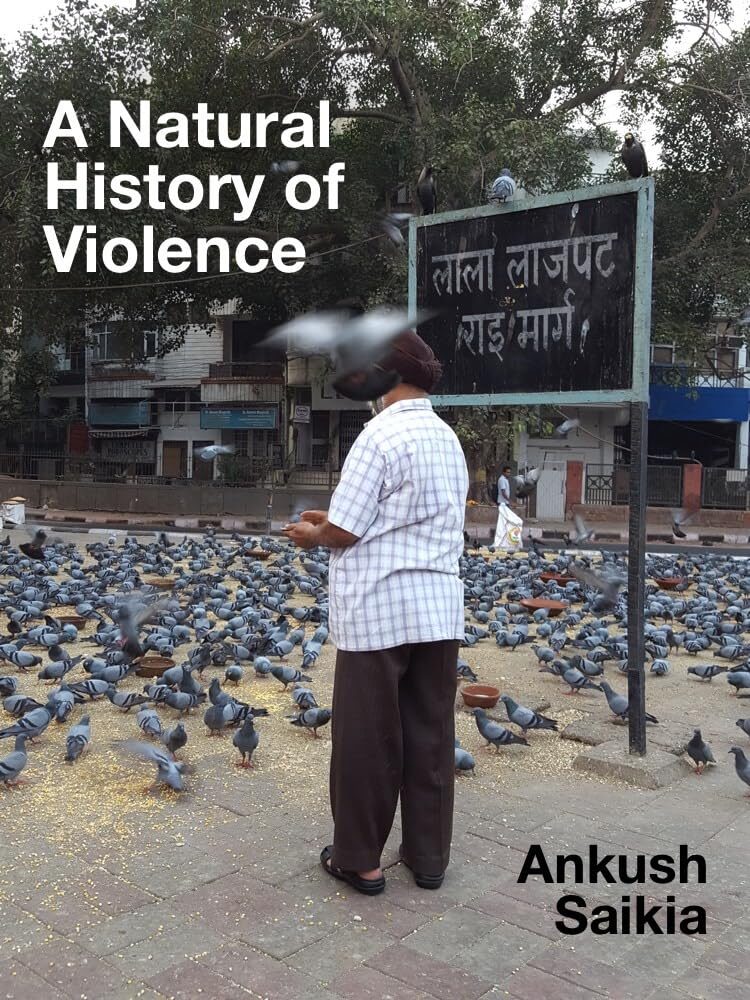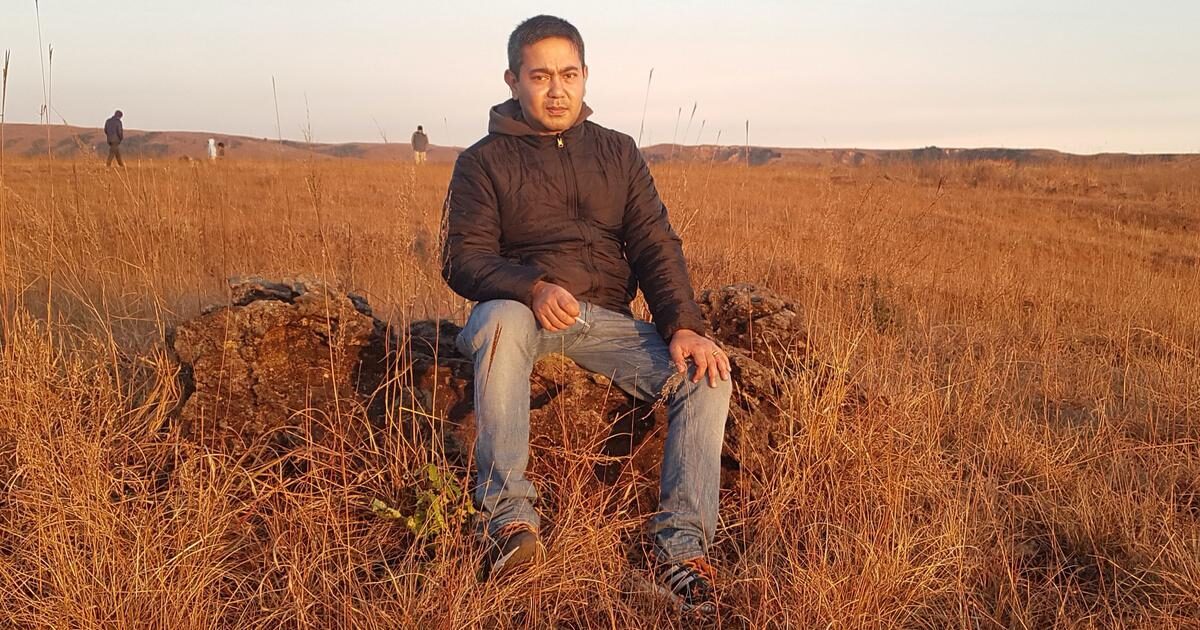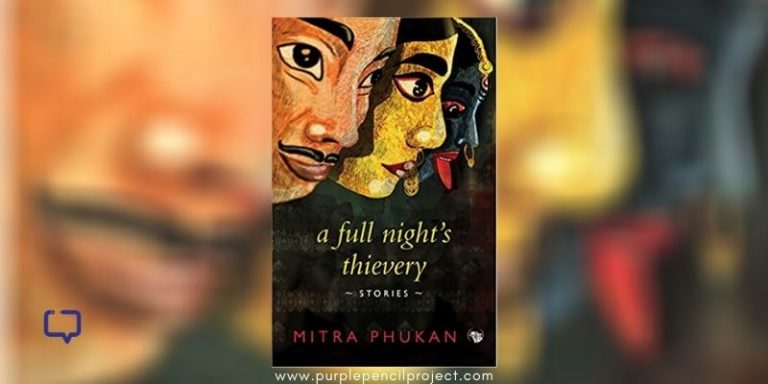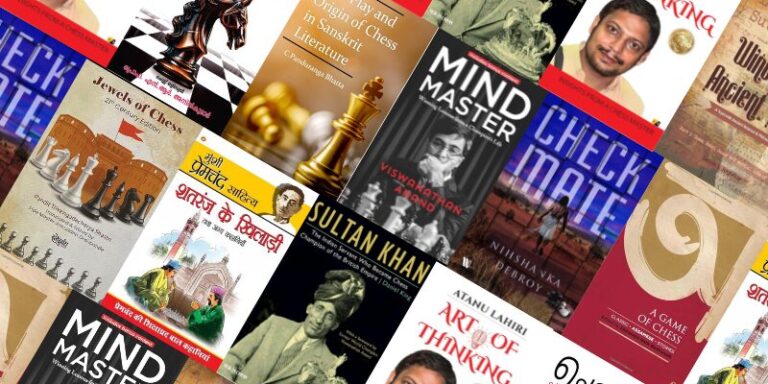Priyadarshini Gauri reviews A Natural History of Violence by Ankush Saikia (Independently published, 2024).
Ankush Saikia lives in the beautiful city of Shillong, living the idyllic life of writing, working in his mother’s bakery, and walking and photographing the picturesque city. What then, made him take to a life of a crime novelist? Moreover, why did he write this novella that explores why a privileged young man would commit a crime?
In his former life, Ankush Saikia was a journalist and also worked in publishing in the mad, bad city of New Delhi. Perhaps, in his encounters with the typical Delhi boys, he might have pondered over why they are often so flashy, entitled, foul-mouthed, and aggressive. Perhaps the seed of this novella was sown years ago.
To understand a bad apple, one must examine not only the tree but also its roots that run deep.
Recommended Reading: A Conversation With Ankush Saikia
The Inciting Incident
In the gripping first chapter of A Natural History of Violence, Vikrant Bedi, a privileged young man, reacts to an evening of things not quite going his way by committing what appears to be a cold-blooded murder. The murder of his father, DCP Virender Bedi.
The reporter assigned to cover the news, Ruchi, is a mother who is deeply affected and intrigued by the story of a son killing his father. This resonates with her as she raises her three-and-a-half-year-old boy, noticing the beginnings of a tense father-son dynamic within her own household.
A Natural History of Violence
The novella takes its name from the diverse theories that explore the natural history of violence, examining its roots in biology, psychology, and society. Throughout human evolution, violence may have served as a tool for survival and competition, deeply ingrained in our behaviour. In contemporary times, efforts are underway to comprehend and diminish violent behaviour through various theories, particularly focusing on the motivations behind violence, such as trauma, mental health issues, and learned behaviours.
Recommended Reading: 8 Contemporary Indian Fictional Detectives
“Completely agree, it’s this patriarchy,” Sayoni said, “boys not being able to express their emotions. Assigned roles to play. It’s terrible.” Somehow, Ruchi didn’t completely agree with the prognosis, but kept quiet.
– Ankush Saikia, A Natural History of Violence
To understand a bad apple, one must examine not only the tree but its roots that run deep. For Ruchi, the investigation begins to hit close to home as she uncovers the intricate history of the Bedi family, stretching back to the partition of the country. She delves into the dark legacy that has persisted through generations of migration, examining how cultural norms, economic disparities, and environmental pressures have affected the psychology of the Bedi men over time. Vikrant, in this context, emerges as a product of generational trauma shaped by the complex history and circumstances of his family.
Distilling Inter-Generational Stories into a Compact Novella
Ankush Saikia’s skilful storytelling in A Natural History of Violence ensures that its inter-generational saga never feels tedious or overstuffed. Alternating between past and present chapters, the novella maintains a sharp focus on the central question: Why did he do it? This streamlined approach makes it a brisk and engaging read, though fans of sprawling family sagas might find its laser-like focus somewhat simplistic. A longer format might have allowed for more character development, too, yet for a novella, this narrative strategy proves effective and compelling.

More than Crime Fiction
Saikia has consistently emphasized his role as a novelist interested primarily in human psychology and relationships rather than being pigeonholed as a crime novelist for marketing reasons. He prefers to kick off his stories with an inciting incident to inject action. However, what truly captivates him are the settings and characters. The setting, in particular, shines in every Ankush Saikia novel I’ve read; his keen eye creates vivid atmospheres that authentically capture each place he portrays. This time, it is my hometown of Delhi—its sights, sounds and smells, but mostly its people—which come alive in his words.
Above all, this novella, with its straightforward narrative, illuminates the importance of recognizing the complex natural history of violence in guiding the justice system’s decisions on sentencing and rehabilitation for criminals in our society.
Favourite Quote from A Natural History of Violence by Ankush Saikia
The anger surged in him again, and he entered his room, locked the door, and drank straight from the bottle. Then he went to the bathroom where he turned on the exhaust and lit a cigarette. He looked at himself in the mirror above the sink: good looking, well built, dangerous looking even, father a top cop. How had he gone wrong?
Of late, he had started to get a strange feeling at times that something was wrong with their family, right from the way there was always only a single son—himself, his father, his grandfather with his crippled feet sunk in gloom in the house in Patel Nagar—being one of the things that occurred to him. But he had no way of analysing this further; he was only reminded every time of the fear he had felt when his grandfather had whispered to him the terrible tales of the batwara or Partition that his father had told him about.
To Conclude
In A Natural History of Violence, Ankush Saikia goes beyond typical crime fiction by delving into the complex psychology and societal influences behind the characters’ actions. Drawing on his experience as a journalist and his deep connection to Delhi, Saikia vividly portrays the city and its people with depth and understanding.
Through Vikrant Bedi’s stories and Ruchi’s investigation, the novella explores the intense dynamics of a crime and makes us think about broader issues like generational trauma, cultural norms, and how history shapes individuals. Ankush Saikia’s brisk storytelling makes this exploration both thought-provoking and compelling, offering readers a deep look into the complexities of violence and justice in today’s world.
Have you read this intriguing novella about the complexities of generational trauma and the psychology behind crime? Share your thoughts in the comments below!






















